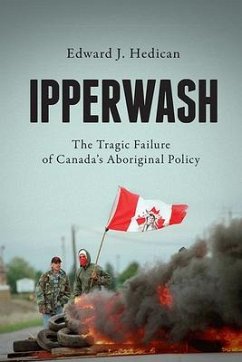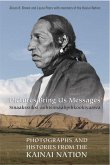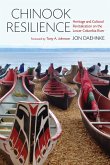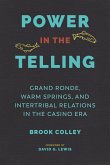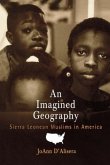- Broschiertes Buch
- Merkliste
- Auf die Merkliste
- Bewerten Bewerten
- Teilen
- Produkt teilen
- Produkterinnerung
- Produkterinnerung
Edward J. Hedican’s Ipperwash provides an incisive examination of protest and dissent within the context of land claims disputes and Aboriginal rights.
Andere Kunden interessierten sich auch für
![Pictures Bring Us Messages / Sinaakssiiksi Aohtsimaahpihkookiyaawa Pictures Bring Us Messages / Sinaakssiiksi Aohtsimaahpihkookiyaawa]() Alison BrownPictures Bring Us Messages / Sinaakssiiksi Aohtsimaahpihkookiyaawa61,99 €
Alison BrownPictures Bring Us Messages / Sinaakssiiksi Aohtsimaahpihkookiyaawa61,99 €![Systems of Consanguinity and Affinity of the Human Family Systems of Consanguinity and Affinity of the Human Family]() Lewis Henry MorganSystems of Consanguinity and Affinity of the Human Family47,99 €
Lewis Henry MorganSystems of Consanguinity and Affinity of the Human Family47,99 €![Chinook Resilience Chinook Resilience]() Jon D DaehnkeChinook Resilience37,99 €
Jon D DaehnkeChinook Resilience37,99 €![Power in the Telling Power in the Telling]() Brook ColleyPower in the Telling36,99 €
Brook ColleyPower in the Telling36,99 €![Dene Nation Dene Nation]() Dene Nation37,99 €
Dene Nation37,99 €![An Imagined Geography An Imagined Geography]() Joann D'AliseraAn Imagined Geography33,99 €
Joann D'AliseraAn Imagined Geography33,99 €![In Vain I Tried to Tell You In Vain I Tried to Tell You]() Dell H HymesIn Vain I Tried to Tell You27,99 €
Dell H HymesIn Vain I Tried to Tell You27,99 €-
-
-
Edward J. Hedican’s Ipperwash provides an incisive examination of protest and dissent within the context of land claims disputes and Aboriginal rights.
Hinweis: Dieser Artikel kann nur an eine deutsche Lieferadresse ausgeliefert werden.
Hinweis: Dieser Artikel kann nur an eine deutsche Lieferadresse ausgeliefert werden.
Produktdetails
- Produktdetails
- Verlag: University of Toronto Press
- Seitenzahl: 320
- Erscheinungstermin: 24. April 2013
- Englisch
- Abmessung: 228mm x 154mm x 23mm
- Gewicht: 506g
- ISBN-13: 9781442610132
- ISBN-10: 1442610131
- Artikelnr.: 36955094
- Herstellerkennzeichnung
- Produktsicherheitsverantwortliche/r
- Europaallee 1
- 36244 Bad Hersfeld
- gpsr@libri.de
- Verlag: University of Toronto Press
- Seitenzahl: 320
- Erscheinungstermin: 24. April 2013
- Englisch
- Abmessung: 228mm x 154mm x 23mm
- Gewicht: 506g
- ISBN-13: 9781442610132
- ISBN-10: 1442610131
- Artikelnr.: 36955094
- Herstellerkennzeichnung
- Produktsicherheitsverantwortliche/r
- Europaallee 1
- 36244 Bad Hersfeld
- gpsr@libri.de
Edward J. Hedican is a professor emeritus of anthropology at the University of Guelph. He is the author of Ipperwash: The Tragic Failure of Canada's Aboriginal Policy and Applied Anthropology in Canada: Understanding Aboriginal Issues.
Preface
1. Introduction
* Ipperwash as a Case Study; Dissent and Society
* The So-Called ‘Indian Problem’
* Research on Aboriginal Policy; Legal, Cultural, and Social
Variability
* Modern Aboriginal Conditions
* The Scope of the Book
2. Aboriginal Policy in Canada
* The Royal Commission on Aboriginal Peoples (1996)
* Nunavut: A New Land, A New Deal (1999)
* Ipperwash Inquiry (1995-2007; Canada Votes against UN Aboriginal
Rights Declaration (2007)
* Prime Minister Harper’s Apology (2008)
* Aboriginal Leader’s Reactions
* Urban Aboriginal Strategy (1997-2012)
* Assessing Canada’s Aboriginal Policy
* Conclusion
3. The Nature of Aboriginal Rights
* The Context of Aboriginal Claims
* The Concept of Aboriginal Rights
* Treaties and Land Surrenders
* Aboriginal Claims Policy
* The Courts and Aboriginal Claims
* Conclusion
4. The Politics of Resistance and Confrontation
* Contested Ground: The Nature of Resistance
* The Ojibway Warrior Society, Kenora, Ontario (1974)
* The Teme-Augama Anishnabai Logging Blockade (1988)
* The Innu and the Goose Bay Air Base Occupation (1988)
* The Lubicon Lake Cree Confrontation (1988)
* The Mohawk Warrior Society, Oka, Quebec (1990)
* First Nations Policing Policy (1992)
* The Gustafsen Lake Standoff (1995)
* The Burnt Church Fishing Dispute (2002)
* Caledonia and the Grand River Land Dispute (2006)
* Grassy Narrows: Mercury Poisoning and Forest Management Protest
(2006)
* The Akwesasne Border Confrontation (2009)
* Patterns of Resistance: Comparative Perspectives
* Aboriginal-Police Relations: Resistance and Reconciliation
* Conclusion
5. The Ipperwash confrontation
* Aboriginal Origins in Ontario
* Kettle and Stony Point First Nations
* Land Cessions
* The Occupation of Ipperwash Park
* The Ontario Government’s Response
* Racial and Culturally Intolerant Attitudes
* The Shooting of Dudley George
* The OPP Response
* A Framework for Police Preparedness
* Chiefs of Ontario Response to the Framework
* Did the OPP Forget the Lessons of Ipperwash?
* Amnesty International is Watching
* Ipperwash Inquiry Backlash
* Ipperwash and the Media
* Conclusion
6. Ipperwash Inquiry Recommendations
* Ipperwash Inquiry Recommendations
* Policing Aboriginal Protests and Occupations
* Facilitating Negotiations
* Project Maple: Crisis Negotiation
* Redressive Action
* Treaty Commission of Ontario
* Wider Considerations of the Ipperwash Inquiry
* Update: Return of Land and Settlements
* Conclusion
7. Ipperwash as Racial Oppression
* Anti-Native Prejudice
* Understanding Racial Oppression
* The Violent Suppression of Aboriginal Protests
* Policy Recommendations Concerning Aboriginal Protests
* Aboriginal Policy as an Exercise of Choice?
* The Systemic Nature of Racial Oppression
* Conclusion
8. Institutional Racism in Canada
* The Characteristics of Institutional Racism
* The Media
* The Police
* The State
* A Policy of Respect, Justice and Tolerance
* Summary of Aboriginal Issues
* Concluding Remarks on Aboriginal Protests and Resistance
NOTES
References
Appendix
Index
1. Introduction
* Ipperwash as a Case Study; Dissent and Society
* The So-Called ‘Indian Problem’
* Research on Aboriginal Policy; Legal, Cultural, and Social
Variability
* Modern Aboriginal Conditions
* The Scope of the Book
2. Aboriginal Policy in Canada
* The Royal Commission on Aboriginal Peoples (1996)
* Nunavut: A New Land, A New Deal (1999)
* Ipperwash Inquiry (1995-2007; Canada Votes against UN Aboriginal
Rights Declaration (2007)
* Prime Minister Harper’s Apology (2008)
* Aboriginal Leader’s Reactions
* Urban Aboriginal Strategy (1997-2012)
* Assessing Canada’s Aboriginal Policy
* Conclusion
3. The Nature of Aboriginal Rights
* The Context of Aboriginal Claims
* The Concept of Aboriginal Rights
* Treaties and Land Surrenders
* Aboriginal Claims Policy
* The Courts and Aboriginal Claims
* Conclusion
4. The Politics of Resistance and Confrontation
* Contested Ground: The Nature of Resistance
* The Ojibway Warrior Society, Kenora, Ontario (1974)
* The Teme-Augama Anishnabai Logging Blockade (1988)
* The Innu and the Goose Bay Air Base Occupation (1988)
* The Lubicon Lake Cree Confrontation (1988)
* The Mohawk Warrior Society, Oka, Quebec (1990)
* First Nations Policing Policy (1992)
* The Gustafsen Lake Standoff (1995)
* The Burnt Church Fishing Dispute (2002)
* Caledonia and the Grand River Land Dispute (2006)
* Grassy Narrows: Mercury Poisoning and Forest Management Protest
(2006)
* The Akwesasne Border Confrontation (2009)
* Patterns of Resistance: Comparative Perspectives
* Aboriginal-Police Relations: Resistance and Reconciliation
* Conclusion
5. The Ipperwash confrontation
* Aboriginal Origins in Ontario
* Kettle and Stony Point First Nations
* Land Cessions
* The Occupation of Ipperwash Park
* The Ontario Government’s Response
* Racial and Culturally Intolerant Attitudes
* The Shooting of Dudley George
* The OPP Response
* A Framework for Police Preparedness
* Chiefs of Ontario Response to the Framework
* Did the OPP Forget the Lessons of Ipperwash?
* Amnesty International is Watching
* Ipperwash Inquiry Backlash
* Ipperwash and the Media
* Conclusion
6. Ipperwash Inquiry Recommendations
* Ipperwash Inquiry Recommendations
* Policing Aboriginal Protests and Occupations
* Facilitating Negotiations
* Project Maple: Crisis Negotiation
* Redressive Action
* Treaty Commission of Ontario
* Wider Considerations of the Ipperwash Inquiry
* Update: Return of Land and Settlements
* Conclusion
7. Ipperwash as Racial Oppression
* Anti-Native Prejudice
* Understanding Racial Oppression
* The Violent Suppression of Aboriginal Protests
* Policy Recommendations Concerning Aboriginal Protests
* Aboriginal Policy as an Exercise of Choice?
* The Systemic Nature of Racial Oppression
* Conclusion
8. Institutional Racism in Canada
* The Characteristics of Institutional Racism
* The Media
* The Police
* The State
* A Policy of Respect, Justice and Tolerance
* Summary of Aboriginal Issues
* Concluding Remarks on Aboriginal Protests and Resistance
NOTES
References
Appendix
Index
Preface
1. Introduction
* Ipperwash as a Case Study; Dissent and Society
* The So-Called ‘Indian Problem’
* Research on Aboriginal Policy; Legal, Cultural, and Social
Variability
* Modern Aboriginal Conditions
* The Scope of the Book
2. Aboriginal Policy in Canada
* The Royal Commission on Aboriginal Peoples (1996)
* Nunavut: A New Land, A New Deal (1999)
* Ipperwash Inquiry (1995-2007; Canada Votes against UN Aboriginal
Rights Declaration (2007)
* Prime Minister Harper’s Apology (2008)
* Aboriginal Leader’s Reactions
* Urban Aboriginal Strategy (1997-2012)
* Assessing Canada’s Aboriginal Policy
* Conclusion
3. The Nature of Aboriginal Rights
* The Context of Aboriginal Claims
* The Concept of Aboriginal Rights
* Treaties and Land Surrenders
* Aboriginal Claims Policy
* The Courts and Aboriginal Claims
* Conclusion
4. The Politics of Resistance and Confrontation
* Contested Ground: The Nature of Resistance
* The Ojibway Warrior Society, Kenora, Ontario (1974)
* The Teme-Augama Anishnabai Logging Blockade (1988)
* The Innu and the Goose Bay Air Base Occupation (1988)
* The Lubicon Lake Cree Confrontation (1988)
* The Mohawk Warrior Society, Oka, Quebec (1990)
* First Nations Policing Policy (1992)
* The Gustafsen Lake Standoff (1995)
* The Burnt Church Fishing Dispute (2002)
* Caledonia and the Grand River Land Dispute (2006)
* Grassy Narrows: Mercury Poisoning and Forest Management Protest
(2006)
* The Akwesasne Border Confrontation (2009)
* Patterns of Resistance: Comparative Perspectives
* Aboriginal-Police Relations: Resistance and Reconciliation
* Conclusion
5. The Ipperwash confrontation
* Aboriginal Origins in Ontario
* Kettle and Stony Point First Nations
* Land Cessions
* The Occupation of Ipperwash Park
* The Ontario Government’s Response
* Racial and Culturally Intolerant Attitudes
* The Shooting of Dudley George
* The OPP Response
* A Framework for Police Preparedness
* Chiefs of Ontario Response to the Framework
* Did the OPP Forget the Lessons of Ipperwash?
* Amnesty International is Watching
* Ipperwash Inquiry Backlash
* Ipperwash and the Media
* Conclusion
6. Ipperwash Inquiry Recommendations
* Ipperwash Inquiry Recommendations
* Policing Aboriginal Protests and Occupations
* Facilitating Negotiations
* Project Maple: Crisis Negotiation
* Redressive Action
* Treaty Commission of Ontario
* Wider Considerations of the Ipperwash Inquiry
* Update: Return of Land and Settlements
* Conclusion
7. Ipperwash as Racial Oppression
* Anti-Native Prejudice
* Understanding Racial Oppression
* The Violent Suppression of Aboriginal Protests
* Policy Recommendations Concerning Aboriginal Protests
* Aboriginal Policy as an Exercise of Choice?
* The Systemic Nature of Racial Oppression
* Conclusion
8. Institutional Racism in Canada
* The Characteristics of Institutional Racism
* The Media
* The Police
* The State
* A Policy of Respect, Justice and Tolerance
* Summary of Aboriginal Issues
* Concluding Remarks on Aboriginal Protests and Resistance
NOTES
References
Appendix
Index
1. Introduction
* Ipperwash as a Case Study; Dissent and Society
* The So-Called ‘Indian Problem’
* Research on Aboriginal Policy; Legal, Cultural, and Social
Variability
* Modern Aboriginal Conditions
* The Scope of the Book
2. Aboriginal Policy in Canada
* The Royal Commission on Aboriginal Peoples (1996)
* Nunavut: A New Land, A New Deal (1999)
* Ipperwash Inquiry (1995-2007; Canada Votes against UN Aboriginal
Rights Declaration (2007)
* Prime Minister Harper’s Apology (2008)
* Aboriginal Leader’s Reactions
* Urban Aboriginal Strategy (1997-2012)
* Assessing Canada’s Aboriginal Policy
* Conclusion
3. The Nature of Aboriginal Rights
* The Context of Aboriginal Claims
* The Concept of Aboriginal Rights
* Treaties and Land Surrenders
* Aboriginal Claims Policy
* The Courts and Aboriginal Claims
* Conclusion
4. The Politics of Resistance and Confrontation
* Contested Ground: The Nature of Resistance
* The Ojibway Warrior Society, Kenora, Ontario (1974)
* The Teme-Augama Anishnabai Logging Blockade (1988)
* The Innu and the Goose Bay Air Base Occupation (1988)
* The Lubicon Lake Cree Confrontation (1988)
* The Mohawk Warrior Society, Oka, Quebec (1990)
* First Nations Policing Policy (1992)
* The Gustafsen Lake Standoff (1995)
* The Burnt Church Fishing Dispute (2002)
* Caledonia and the Grand River Land Dispute (2006)
* Grassy Narrows: Mercury Poisoning and Forest Management Protest
(2006)
* The Akwesasne Border Confrontation (2009)
* Patterns of Resistance: Comparative Perspectives
* Aboriginal-Police Relations: Resistance and Reconciliation
* Conclusion
5. The Ipperwash confrontation
* Aboriginal Origins in Ontario
* Kettle and Stony Point First Nations
* Land Cessions
* The Occupation of Ipperwash Park
* The Ontario Government’s Response
* Racial and Culturally Intolerant Attitudes
* The Shooting of Dudley George
* The OPP Response
* A Framework for Police Preparedness
* Chiefs of Ontario Response to the Framework
* Did the OPP Forget the Lessons of Ipperwash?
* Amnesty International is Watching
* Ipperwash Inquiry Backlash
* Ipperwash and the Media
* Conclusion
6. Ipperwash Inquiry Recommendations
* Ipperwash Inquiry Recommendations
* Policing Aboriginal Protests and Occupations
* Facilitating Negotiations
* Project Maple: Crisis Negotiation
* Redressive Action
* Treaty Commission of Ontario
* Wider Considerations of the Ipperwash Inquiry
* Update: Return of Land and Settlements
* Conclusion
7. Ipperwash as Racial Oppression
* Anti-Native Prejudice
* Understanding Racial Oppression
* The Violent Suppression of Aboriginal Protests
* Policy Recommendations Concerning Aboriginal Protests
* Aboriginal Policy as an Exercise of Choice?
* The Systemic Nature of Racial Oppression
* Conclusion
8. Institutional Racism in Canada
* The Characteristics of Institutional Racism
* The Media
* The Police
* The State
* A Policy of Respect, Justice and Tolerance
* Summary of Aboriginal Issues
* Concluding Remarks on Aboriginal Protests and Resistance
NOTES
References
Appendix
Index

